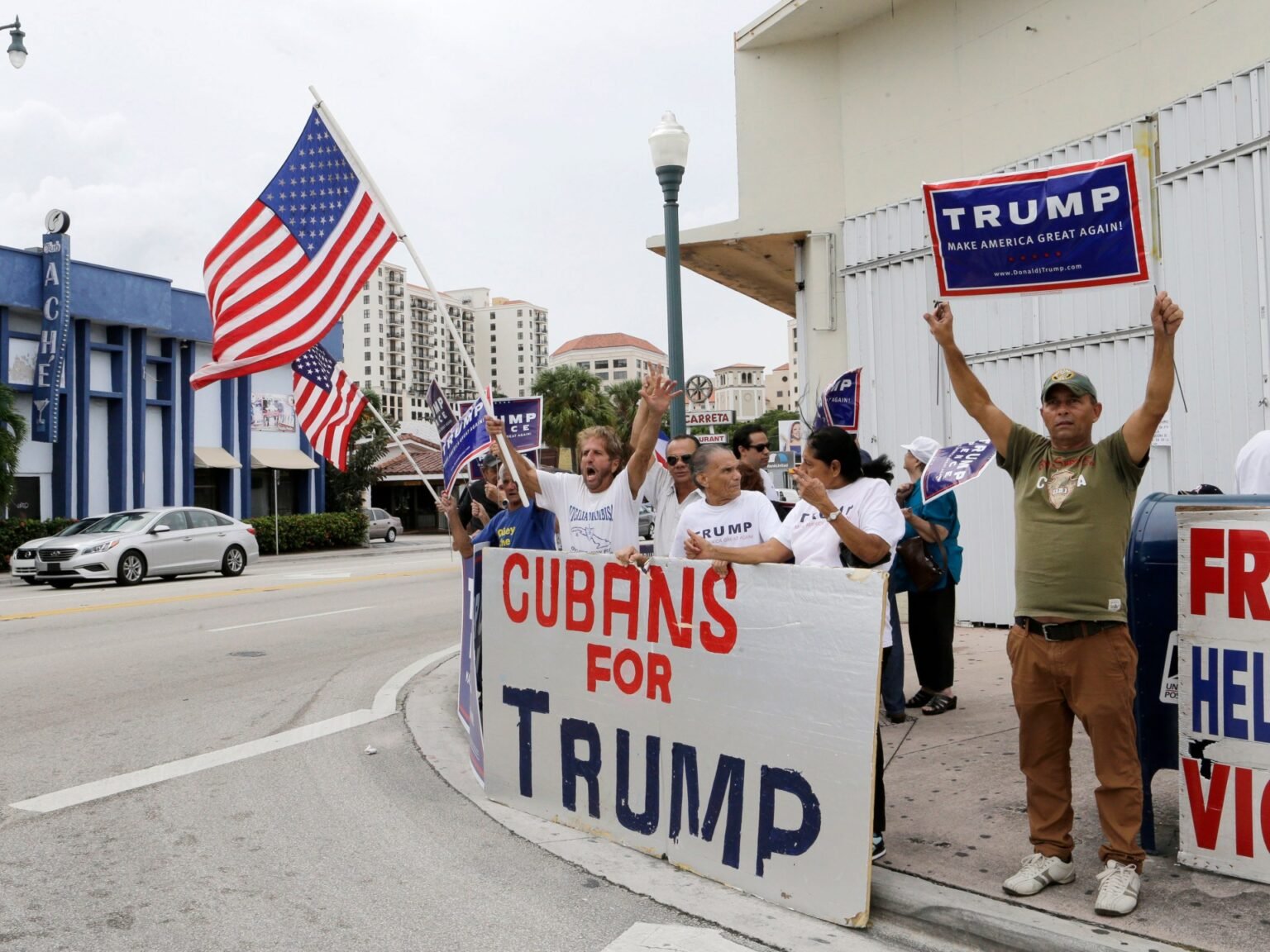Cuba’s Ministry of Foreign Affairs has issued a statement of protest against the head of the United States mission to the island, Michael Hammer.
In a news release published on Friday, the Foreign Ministry accused Hammer, a career diplomat, of “unfriendly and meddling behaviour” since his arrival in Cuba in late 2024.
“By inciting Cuban citizens to commit extremely serious criminal acts, attacking the constitutional order, or encouraging them to act against the authorities or demonstrate in support of the interests and objectives of a hostile foreign power, the diplomat is engaging in provocative and irresponsible conduct,” the Foreign Ministry wrote.
“The immunity he enjoys as a representative of his country cannot be used as cover for acts contrary to the sovereignty and internal order of the country to which he is assigned, in this case, Cuba.”
The Foreign Ministry said the message was delivered by its director of bilateral affairs with the US, Alejandro Garcia del Toro.
Friday’s statement is the latest indication of increasingly rocky relations between Cuba and the US, particularly since President Donald Trump began his second term in January.
A history of tensions
Diplomatic ties between the two countries, however, have been icy for decades, stretching back to the Cold War in the 1960s. After the Cuban Revolution of 1959, the US government imposed strict trade restrictions on the island and backed efforts to topple the newly established Communist government.
But there have been efforts to ease the tensions, notably during the administrations of Democratic presidents like Barack Obama and Joe Biden in the US.
In 2016, for instance, Obama sought to normalise relations with Cuba, only to see those efforts rolled back during the first Trump administration, starting in 2017.
Likewise, President Biden – who formerly served as Obama’s vice president – removed Cuba from the US’s list of “state sponsors of terrorism” in the waning days of his term in January.
But upon taking office for his second time on January 20, Trump reversed course once more, putting Cuba back on the list that very same day.
Trump also included in his presidential cabinet several officials who have taken a hardline stance towards Cuba, most notably former Secretary of State Marco Rubio. Born to Cuban immigrants, Rubio is an outspoken supporter of continuing the trade embargo against the island.
The Cuban government, meanwhile, has continued to accuse the US of attempting to destabilise its leadership.
In Friday’s statement, the Cuban Foreign Ministry accused Hammer of “public and insulting manipulation” for his recent visit to the tomb of a 19th-century national hero, Jose Marti.
The US Embassy to Cuba posted a video of the visit with a voiceover of Marti’s words, “Respect for the freedom and thoughts of others, even of the most unhappy kind, is my passion: If I die or am killed, it will be for that.” Critics have interpreted that citation as an implied endorsement of dissent on the island.
Ramping up pressure
In recent months, there have also been signs that Trump plans to once again tighten the screws on the Cuban government, in a return to the “maximum pressure” campaigns that typified foreign policy during his first term.
In February, for instance, the Trump administration announced it would yank visas from anyone who works with Cuba’s medical system, which sends thousands of healthcare workers abroad each year, particularly in the Caribbean region.
Critics have criticised the healthcare programme for its low pay and hefty restrictions on its employees. Trump and Rubio, meanwhile, have claimed the medical system amounts to a form of “forced labour” that enriches the Cuban government. But leaders in Havana have denied that allegation.
Then, in April, the US government condemned Cuba for re-arresting a group of dissidents, among them prominent figures like Jose Daniel Ferrer and Felix Navarro.
Cuba had initially agreed to release Ferrer and Navarro as part of a bargain brokered by the Vatican earlier this year.
Cuba was expected to release 553 prisoners, many of whom were swept up in antigovernment protests, and in exchange, the US was supposed to ease its sanctions against the island. The sanctions relief, however, never came.
An additional measure was taken against Cuba just this month. The Department of State, under Rubio’s direction, determined that “Cuba did not fully cooperate with US counterterrorism efforts in 2024”. It accused Cuba of harbouring 11 fugitives, some of whom faced terrorism-related charges in the US.
“The Cuban regime made clear it was not willing to discuss their return to face justice in our nation,” the State Department wrote in a news release. “The United States will continue to promote international cooperation on counterterrorism issues. We also continue to promote accountability for countries that do not stand against terrorism.”
As punishment, Cuba was labelled as a “not fully cooperating country” under the Arms Export Control Act, a designation that limits its ability to buy weaponry and other defence tools from the US.
Furthermore, Hammer had recently signalled that new sanctions were on the way for the island.
But in the face of Friday’s reprimand, the State Department indicated it was undeterred and would continue to support dissidents against Cuba’s “malign influence”.
Read the full article here
